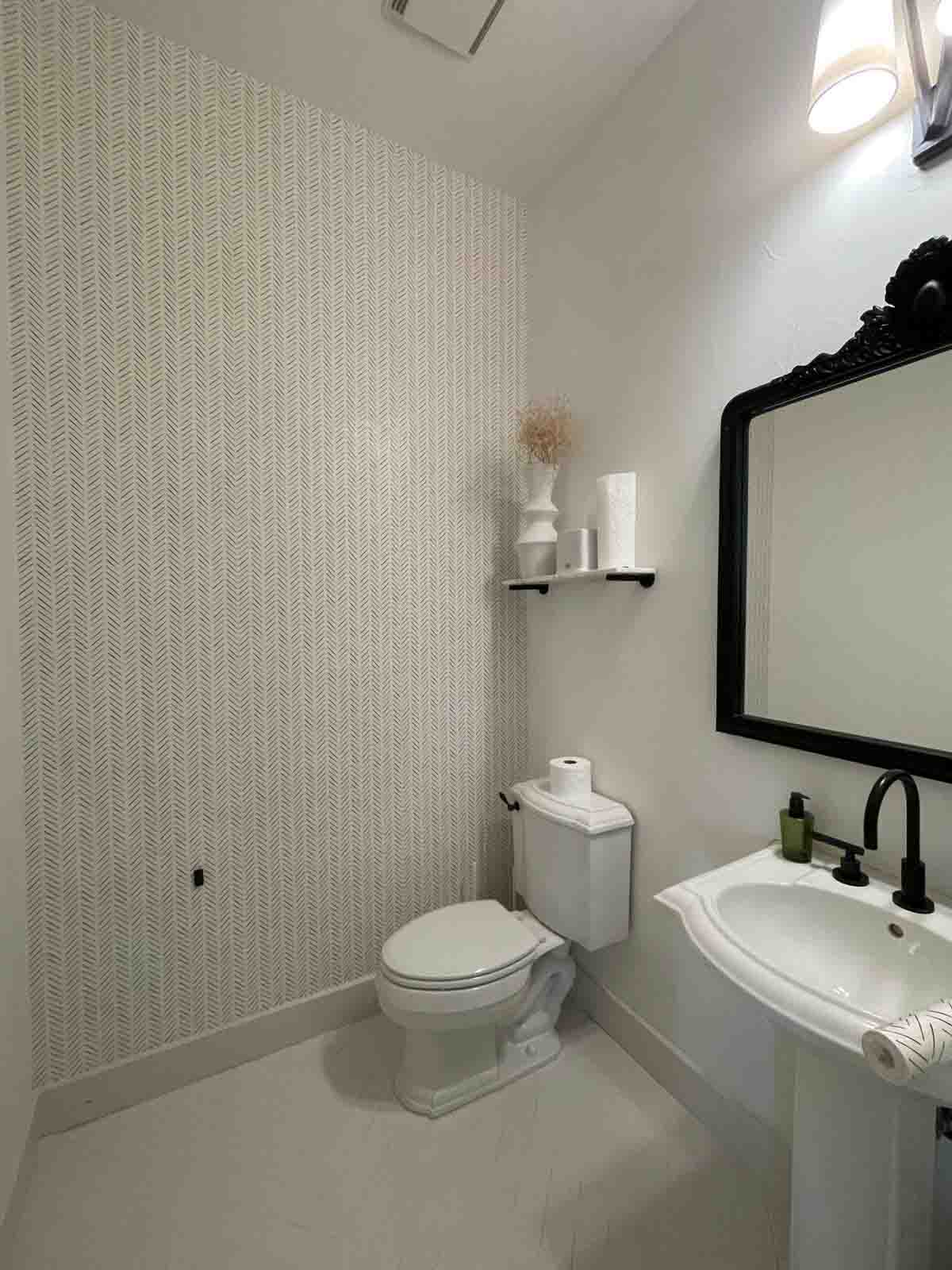Home » Challenges of installing prepasted wallpaper
Updated June 2025
Challenges of installing prepasted wallpaper arise even though this type of wallpaper is known for convenience and ease of use. 🏠
It comes with glue already applied, and many DIYers love it for its simplicity. However, despite how simple it may seem, there are still several challenges you should be aware of before starting your project.



Table of Contents
TogglePrepasted wallpaper has adhesive pre-applied, which activates with water. That sounds simple — but:
The paste activation is tricky to control
Timing is critical during installation
Surface prep must be flawless
Even experienced DIYers run into bubbles, seams, and poor adhesion if they don’t follow expert-level technique.
Before you even touch the wallpaper, your wall needs to be:
Clean (no dust, debris, or grease)
Smooth and primed
Free from old wallpaper or loose paint
📌 Learn more in The Importance of Properly Preparing Walls Before Wallpaper Installation
Skipping these steps can cause peeling, bubbling, and short wallpaper lifespan.
Here are the real problems our Colorado clients encounter:
Too little water = adhesive failure
Too much water = sagging or tearing
🎯 Finding the balance takes experience.
Once wet, you only have minutes to get it up and aligned. Large areas may require two people to avoid seam gaps or dry spots.
Patterns must be perfectly aligned — even slight shifts ruin the look. Complex prints can be especially unforgiving.
You must smooth evenly outward using the right tools. Built-in adhesive doesn’t guarantee a perfect finish.
Colorado homes often have textured or uneven drywall. That leads to misalignment or bubbles. Learn more in Can You Put Wallpaper on Textured Walls?
Cutting accurately around windows, outlets, and corners is a true skill. One wrong slice and the whole sheet looks crooked.
Prepasted wallpaper forms a strong bond. Taking it off in a few years? Expect hours of labor and chemical solution.
We work with premium manufacturers including:
Better wallpaper + expert install = longer life and less frustration.
EnjoyTheWall installs wallpaper throughout Colorado, with a focus on the Denver metro area, including:
Denver
Aurora
Lakewood
Highlands Ranch
Boulder
Centennial
Castle Rock
Yes, but we often fix DIY issues. For large walls or patterned paper, hire a pro.
No. It’s bonded tightly and usually requires steam or chemicals.
Only if walls are sealed and dry. Consider vinyl wallpaper instead.
Tried prepasted wallpaper and got bubbles, mismatched seams, or peeling corners? Let our expert team fix or prevent those issues.